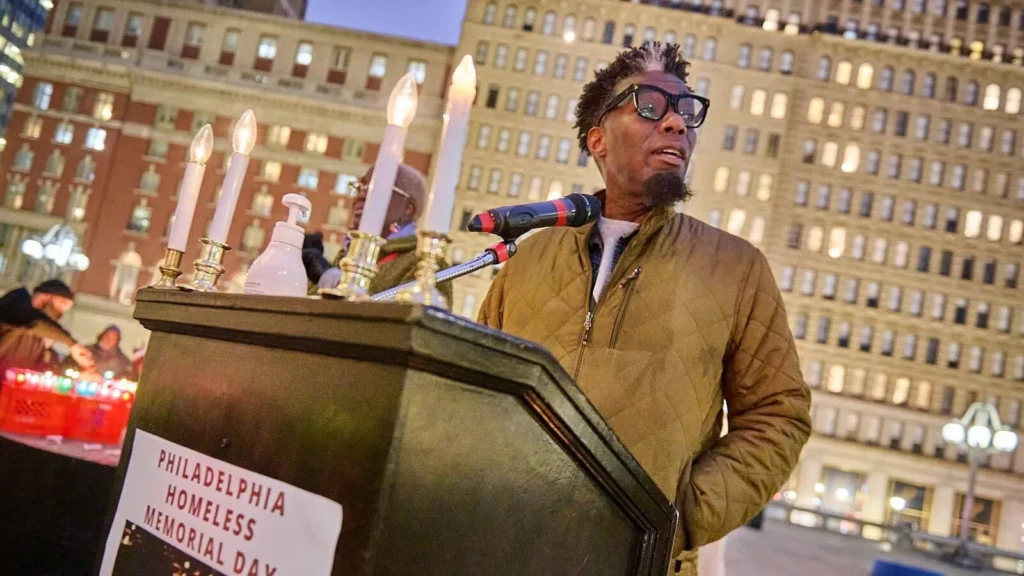Conservative and evangelical Christians draw our ire for good reason: These are the people who most often, in the guise of “hating the sin but loving the sinner,” condemn us simply because we are who we are. We see the face of such hatred every year at Outfest, when Michael Marcavage and his followers, exercising their right to free speech, plant themselves in the middle of the street fair and, in the name of saving us, judge us instead.
As a Christian, I find this highly offensive. After all, Jesus hung out with sinners whose behavior he clearly did not approve of. But he reserved his strongest disapproval for those other sinners who would condemn them. He did not say, “Hate the sin but love the sinner,” but he did say this: “Let him who is without sin cast the first stone.” And this: “Judge not, lest you be judged.”
This message may finally be soaking in among some evangelicals, especially younger ones. These conservative Christians are coming to the conclusion that respecting the humanity of those they disagree with is as important as voicing their disagreement – maybe even more so.
This past August, I heard an interview with a prominent conservative theologian who has taken this notion to heart. His name is Richard Mouw, and he is president of Fuller Theological Seminary in Pasadena, Calif. On the American Public Media radio program “Krista Tippett on Being,” Mouw went into great detail on how he has devoted his life to promoting civility as the proper response to deep differences and to engaging, even embracing, those with whom he deeply disagrees.
One reason why this is so necessary: Often, those people are the same ones we love.
In his interview, Mouw related an incident that brought this fact home. He had spoken to a conservative congregation in a mainline Protestant denomination that is split over issues such as ordination of gay clergy and performing same-sex marriages. (Sounds a lot like my own Episcopal Church.) Afterwards, a couple came up to thank him for supporting their opposition to such practices. He then told them, “At the same time, we need to deal with this in new ways. I mean, there are just a lot of folks out there who are really being hurt by the anger of things.” With that, something unexpected happened.
“All of a sudden, [the wife] started to cry,” Mouw said. “They looked at each other and it was like they gave each other permission and then they said to me, ‘Our son is gay. He recently came home with his partner and we just decided that we want to stay related to our son and it meant that we had to accept the two of them into our home. They actually agreed to go to church with us on Sunday. At the end of the service, they said, “We’re glad we were with you today.”‘ They said, ‘We realize that we need to think some new thoughts and do some new things on this.'”
The conservative Christians who have come to this kind of understanding remain a minority, to be sure. But it is a growing one, especially among the younger generation that has grown up knowing openly gay and lesbian friends, classmates and playmates.
In the full interview, Mouw calls on religious conservatives and liberals alike to abandon their angry rhetoric and condemnation of their opponents and strive to seek common ground – to work for “the common good,” a phrase that has sadly disappeared from our public discourse. Given the strong passions that still run on LGBT issues, Mouw may still find his call largely ignored. But if his fellow conservatives can drop their angry signs and judgmental attitudes – as both he and Jesus would have them do – they might find that more on the other side would, if not yet embrace them, then at least accept their presence.
Those parents chose to embrace rather than judge their gay son. Is it possible for us to accept, coexist with, and even embrace those who consider our existence immoral? The answer may depend on how you frame the question – or on what you choose to leave out. I encourage you to go to the On Being website and listen to or read the entire hour-long conversation. Then come back here and share your thoughts with me and your fellow readers.






